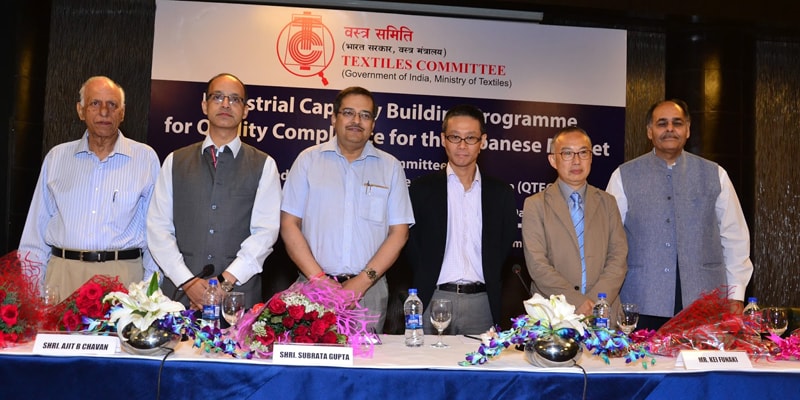 Government of India organized an Industry Capacity Building Programme on Quality Compliance of Indian Textiles & Clothing for Japanese Market at Hotel Le Meridienin New Delhi on May 17. The programme is being organized in 9 cities across the country.
Government of India organized an Industry Capacity Building Programme on Quality Compliance of Indian Textiles & Clothing for Japanese Market at Hotel Le Meridienin New Delhi on May 17. The programme is being organized in 9 cities across the country.
The programme was well attended by the leading textile industry and trade personnel. While addressing the event, Joint Secretary, Ministry of Textiles, Subrata Gupta outlined Japanese quality consciousness. He said that though India’s manufacturing capacity is enormous, its exports to Japan are very minimal in textiles, and by changing the mind-set the country can compete with Japanese quality requirements and hence enhance its quantum of textiles exports.
Secretary, Textiles Committee, Ajit B Chavan added that a major reason behind sub-optimal level of exports to Japan from India is lack of awareness about the Japanese textile quality requirements in Indian textile industry.
Also Read – Maharashtra (India) to revamp khadi industry
The Government last year signed an MoU with Japan Textile Products Quality and Technology Centre (QTEC) through the Textiles Committee with a view to jointly establish and encourage quality compliance activities in the industry.
The MoU is expected to usher in a new beginning in the International Trade of Textile and Clothing from India to Japan as Indian industry is marching ahead. The industry appreciated the initiative taken by the Government and the Textile Committee which will bring in sizeable difference in the international trade, Secretary, Textiles Committee, Ajit B Chavan said.
Toshiki Tasaka, Director, Overseas Coordination Department of QTEC; and Kei Funaki, ASEAN and South Asia Regional Manager, Overseas Coordination Department, QTEC deliberated in depth on the subjects: ‘Difference of quality requirements between Western buyers’; ‘Quality and Compliance in Japan and JIS Overview’; and ‘The Banned substance in Japanese Market’ at the event.
Japanese delegates also discussed Japanese market requirements in terms of quality, makeup, benchmarking tools, Japanese industrial standards and various other compliances.






